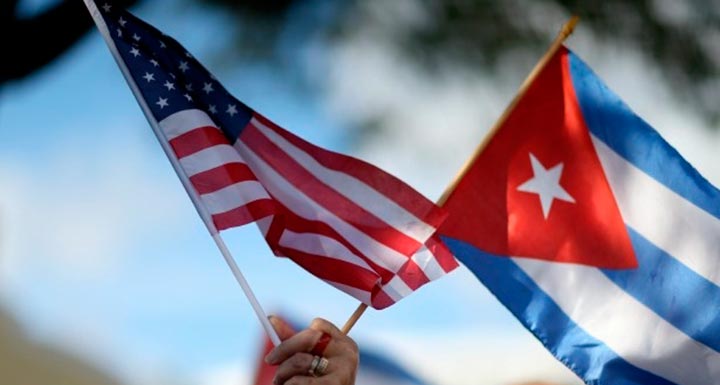
Normalization the new normal – soon
WASHINGTON, DC – Cuban and U.S. diplomats sat at the same table for unprecedented framework talks on human rights [this past week]. U.S. policymakers dropped hints that Cuba would soon be dropped from the State Sponsors of Terrorism list. AirBnB started offering U.S. travelers the ability to make on-line reservations in Cuba. A new poll showedmajority support among Cuban Americans for President Obama’s new policies. And American University released a fascinating series of papers: Implications of Normalization.
On December 16, 2014, any one of these developments could have been sufficient to lead the news and instill us with a healthy measure of optimism.
Back then (by which we mean just 109 days ago) there were two constants in U.S.-Cuba policy: the United States had an unbreakable commitment to facilitating regime change on the island by isolating Cuba’s government and immiserating the Cuban people; and that policy, because it was owned by powerful Cuban American hardliners, would never be changed.
In that era of decades-long hostility, every hopeful moment that unexpectedly arose also evanesced quickly. It seemed inevitable that events would force one or both governments to regress to the mean.
Since December 17, a new narrative — one that values normalcy over hostility — has taken hold.
We’re not saying everything is better. The embargo remains in place. The U.S. still seems unable to wash the regime change mentality completely out of our system. Cuba’s government continues to seek and exert control (50% Internet usage by 2020? Really?); although loyalists dissent publicly from those holding onto their “siege mentality.” Of course, both capitals still hold divergent views on human rights and foreign policy and express them unreservedly.
Yet, something fundamental is changing. The sharp disagreements that drove us apart for decades are now being mediated in a process that is designed to narrow and resolve our differences.
Today, Americans are engaged by the possibility they soon could use their MasterCard while staying in an Airbnb in Havana, or that further changes in public opinion will encourage U.S. policy makers to abolish all remaining limits on travel and lift the embargo once and for all.
Ultimately, we think these changes will build on one another and, perhaps faster than we imagine, normalization will be the new normal for U.S.-Cuba relations.
(From the Cuba Central Newsblast)

